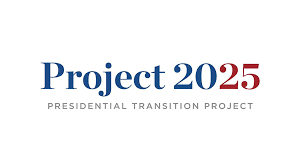Arizona’s Vaccines for Children (VFC) program, designed to ensure kids from low-income families can get vaccinated, has hit a rough patch in recent years. Over the past few years, the state has seen a significant drop in participating providers, meaning it’s been getting harder and harder for parents to actually get their kids vaccinated.
Under the Ducey administration, the number of providers fell by 50%, leaving Arizona with only six VFC providers per 10,000 Medicaid-eligible kids, compared to the national average of 24 per 10,000.
Several issues have been at the heart of this decline. Providers have faced cumbersome ADHS administrative processes, like complicated vaccine ordering and returns, and difficulties integrating their systems with the Arizona State Immunization Information System.
Additionally, the program’s enforcement of strict policies, including restitution (fines), has been a major deterrent for many providers. These fines, coupled with accusations of fraud for administrative errors, created a punitive environment that many found off-putting, running many providers off the VFC program.
I’m happy to report that ADHS has finally begun making some changes to turn things around after several years of full court press administrative advocacy on the part of a constellation of stakeholders and county health departments
They’re working to stop the bleeding of VFC providers and hopefully eventually increase the number of VFC providers by streamlining the application process and offering more support to healthcare providers. A recent report by the Arizona Partnership for Immunization, in collaboration with the OMNI Institute, has laid out recommendations to address these challenges and improve the program.
See: An Assessment of the Facilitators and Challenges to Providing Vaccine)
This week ADHS Deputy Director posted a blog highlighting new measures aimed at expanding the provider network and simplifying processes. For instance, the department is pausing the enforcement of the contentious dose-for-dose restitution policy and implementing more provider-friendly approaches and updating their VFC Program Operations Guide. Policy changes include:
- Elimination of the penalties for unused vaccine doses (known as “restitution” or dose for dose replacement)
- Reducing the requirement for a provider to be open at least 4 days-a-week to 4 consecutive hours on a given day
- Clearer guidance on operating mobile clinics
- Reducing the requirement to record temperature readings from twice per day to once per day
- Clarifying that records can be stored electronically and/or off-site
The Arizona VFC Program Operations Guide and a summary of the changes can be found on the Arizona VFC Home Page in the announcement box or on the VFC Operations Guide and Resources page.
AZPHA commends Ms. Sjolander’s leadership in trying to turn the ship around. These new policy changes (if implemented consistently), have a chance at rebuilding and enhancing Arizona’s VFC program and ensuring more children can access crucial vaccinations.
___________________
Important Background
The Vaccines for Children Program makes sure kids whose parents can’t afford vaccines can still get their kids vaccinated. Funding for VFC comes via the CDC, who buys vaccines at a discount and distributes them to states. States distribute them to physicians’ offices & clinics that take part in the VFC program. ADHS manages the VFC program in our state.
Arizona lost 50% of its VFC providers during the Ducey administration – going from 1,200 to 600… reducing access to vaccine, lowering childhood vaccination rates and harming overall AHCCCS network capacity.
Maricopa County Department of Public Health contracted with The Arizona Partnership for Immunizations to study this issue and prepare a report describing the facilitators and challenges to participating in the VFC program from healthcare providers’ perspectives, as well as recommendations for reversing this course. TAPI hired OMNI Institute, a social sciences non-profit consultancy to conduct this assessment.
That report, entitled An Assessment of the Facilitators & Challenges Providing-Vaccine in Arizona was released in December 2023. The 96-page report has many findings. A common theme as presented in the Executive Summary:
“Respondents expressed frustration with the complexity surrounding ordering and returning vaccines, the challenges integrating practice electronic medical record systems with the Arizona State Immunization Information System and the administrative burdens regarding compliance and reconciliation.”
“When asked about the significant challenges/barriers to their continued participation in the VFC program, a common theme respondents raised was an adversarial tone in the enforcement of VFC policies and communications, with administrative errors (some of which stemmed from ASIIS) often being met with accusations of fraud and/or wastage. Many non-VFC providers pointed to administrative burdens, expensive charges to rectify incorrect dose counts, and a generally punitive tone from the VFC program as rationales for their non-participation.”



